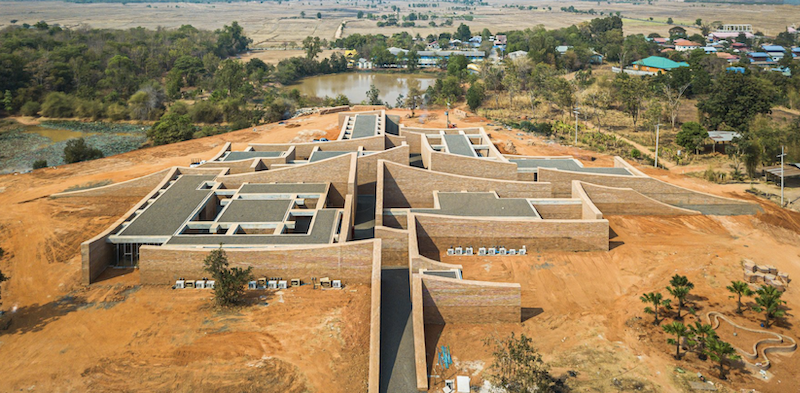The unique relationship between the people of Thailand and elephants dates back at least three centuries. Elephants were used in war and peace, and in rural villages were domesticated to the point where the beasts lived under the same roofs as humans, with their respective lives virtually inextricable.
Deforestation devastated that bond between elephants and the Kui people in northeast Thailand’s Surin Province, depriving both of food and medicinal plants. The province also incurred severe droughts. These events displaced the Kui and elephants to surrounding towns, begging for food or working in elephant camps.
Last month, as part of the government’s “Elephant World” plan that seeks a safe and prosperous reuniting of the Kui and elephants within their homeland, the Surin Provincial Administration Organization completed its Elephant Museum, which sits on a 5,400-sm site and used 480,000 handmade clay bricks in its construction.
Bangkok Project Studio, the museum’s architect, has incorporated handmade bricks for projects before, including the eight-meter-tall walls of the Kantana Film and Animation Institute, which opened in Nakhom Pathom, Thailand, in 2011; and more recently the Elephant Stadium pavilion at Elephant World in Surin, Thailand, completed in 2015.
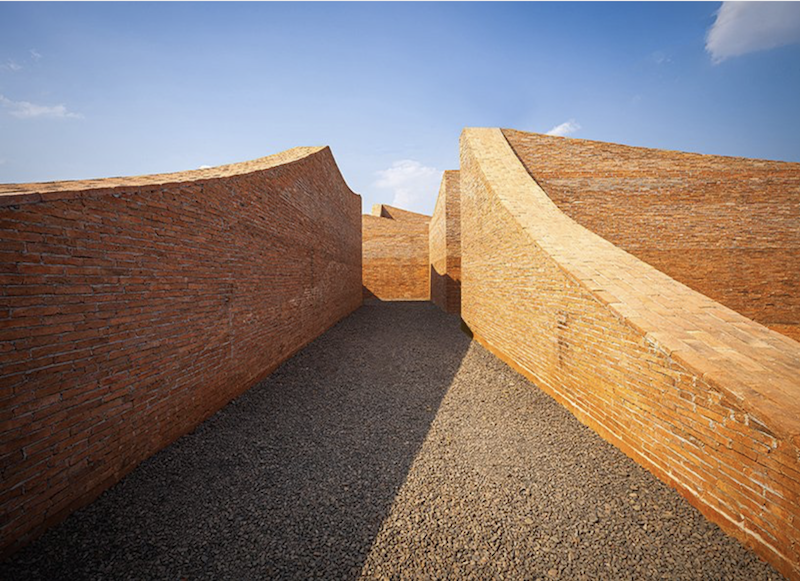
The complex's curved walls provide visitors with different perspectives, depending on the time of day.
A MESSAGE OF HOPE
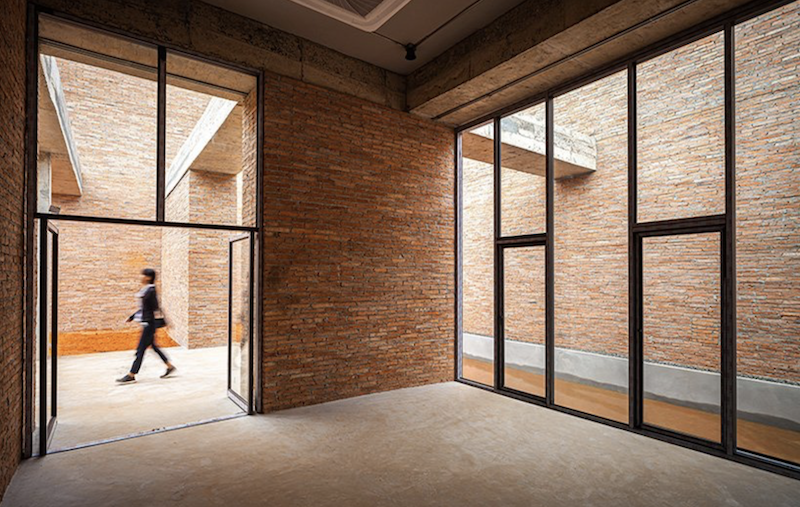
Visitors can move freely from one exhibit space to another through entries within the walls.
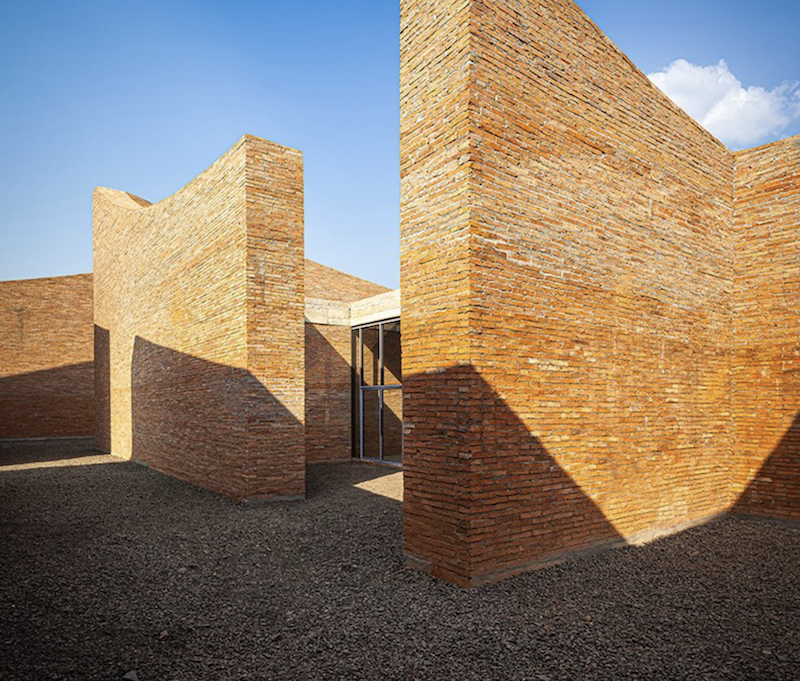
The Elephant Museum, built by Rattanachart Construction, Ltd., is divided into four sections. The first includes a reception area, exhibition room, library, seminar room, and shops for coffee and gifts. The other three sections feature exhibition spaces that touch on the relationship between the Thai people and elephants; the deforestation that places the elephants’ survival at risk; and a message of empowerment, where visitors can take pride in their culture.
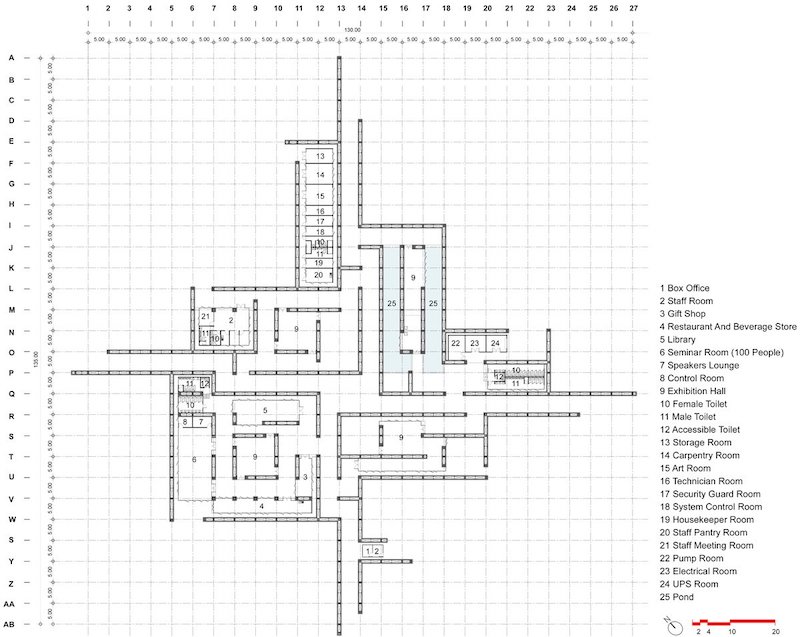
The museum divides into four sections.
More than 200 elephants live in Surin Province, and the museum’s exhibits reiterate its people’s disapproval of animal cruelty and exploitation, while projecting hope for the future.
The museum, which was completed last month, is within a complex of buildings that includes a play area for elephants, a research center, and educational facilities. Visitors can circulate from one space to another through openings in arched walls. Indoor and outdoor areas allow for a variety of programming.
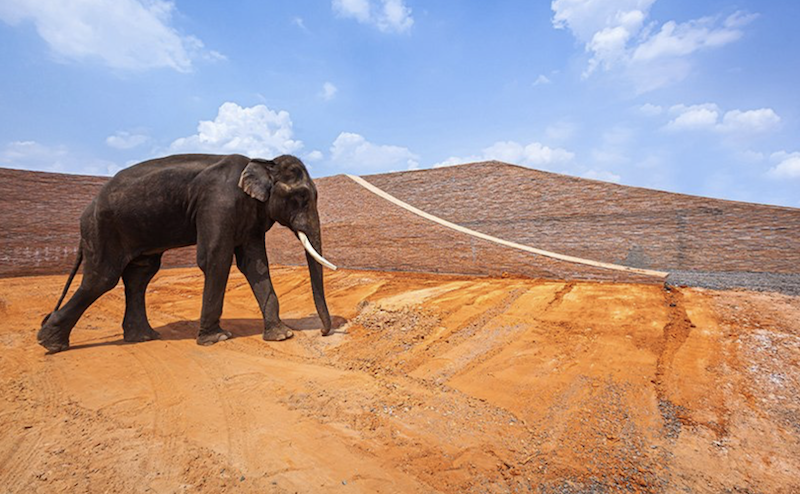
The museum includes a play area for elephants.
Related Stories
| Aug 11, 2010
CTBUH changes height criteria; Burj Dubai height increases, others decrease
The Council on Tall Buildings and Urban Habitat (CTBUH)—the international body that arbitrates on tall building height and determines the title of “The World’s Tallest Building”—has announced a change to its height criteria, as a reflection of recent developments with several super-tall buildings.
| Aug 11, 2010
JE Dunn, Balfour Beatty among country's biggest institutional building contractors, according to BD+C's Giants 300 report
A ranking of the Top 50 Institutional Contractors based on Building Design+Construction's 2009 Giants 300 survey. For more Giants 300 rankings, visit http://www.BDCnetwork.com/Giants
| Aug 11, 2010
Jacobs, Arup, AECOM top BD+C's ranking of the nation's 75 largest international design firms
A ranking of the Top 75 International Design Firms based on Building Design+Construction's 2009 Giants 300 survey. For more Giants 300 rankings, visit http://www.BDCnetwork.com/Giants
| Aug 11, 2010
Walter P Moore wins top award for Nerman Museum of Contemporary Art
With structural engineering from Walter P Moore, Nerman Museum of Contemporary Art has won the New Buildings Under $30 Million project category in the 2009 Structural Engineers Association of Kansas & Missouri (SEAKM) Awards Program.
| Aug 11, 2010
Architecture Billings Index flat in May, according to AIA
After a slight decline in April, the Architecture Billings Index was up a tenth of a point to 42.9 in May. As a leading economic indicator of construction activity, the ABI reflects the approximate nine to twelve month lag time between architecture billings and construction spending. Any score above 50 indicates an increase in billings.
| Aug 11, 2010
Construction employment declined in 333 of 352 metro areas in June
Construction employment declined in all but 19 communities nationwide this June as compared to June-2008, according to a new analysis of metropolitan-area employment data released today by the Associated General Contractors of America. The analysis shows that few places in America have been spared the widespread downturn in construction employment over the past year.
| Aug 11, 2010
Jacobs, Hensel Phelps among the nation's 50 largest design-build contractors
A ranking of the Top 50 Design-Build Contractors based on Building Design+Construction's 2009 Giants 300 survey. For more Giants 300 rankings, visit http://www.BDCnetwork.com/Giants
| Aug 11, 2010
Bowdoin College has country's first newly constructed LEED-certified ice arena
Bowdoin College's new Sidney J. Watson Arena, dedicated January 18, 2009, has become the first newly constructed ice arena in the United States to earn coveted LEED (Leadership in Energy and Environmental Design) certification from the United States Green Building Council (USGBC).


